
Teaching in remote regions presents unique challenges and opportunities. Reid Nelson, an experienced “itinerant, transient instructor” (as he describes himself), has embraced this reality through his work with Coast Mountain College’s Essential Employment Skills Program (formerly the Essential Office Skills Program). The program, delivered on location in Nunavut, Canada, in partnership with the Kitikmeot Inuit Association (KIA) has taken him to the communities of Kugaaruk, Cambridge Bay, Gjoa Haven, Kugluktuk, and Taloyoak. Together, Nelson’s dedication to fostering skills development and the resilience of northern communities, work to highlight the transformative power of education.
Nelson’s experiences teaching in Nunavut are often impacted by the stark realities of life in the North. Despite harsh conditions—including temperatures as low as -53°C—Nelson adapts to each situation that arises. In Taloyoak, after a diesel spill contaminated the air circulation system at the local high school, Nelson initially taught in the hotel for a week before transitioning classes to the Arctic College. Since the college was also providing space for the high school classes, Nelson taught the Essential Employment Skills Program in their teaching kitchen.
In Kugaaruk this past winter, a two-day blizzard with winds gusting up to 80 kilometres per hour cancelled classes. On the third day, blizzard conditions abated a bit and Nelson decided to walk to work. Just outside his hotel, he found himself trudging along on top of four-foot-deep snowdrifts that had covered the road. Once at the KIA office, he made a pot of coffee and settled into work. Before long, his phone was buzzing with messages from students wondering if there would be class. Inspired by Nelson’s example, most of the students made their way to the KIA office as well, and by 10:00 o’clock in the morning, classes were underway even though the road crews didn’t start ploughing until the afternoon.
Despite the logistical challenges, Nelson fondly recalls the warmth and resourcefulness of the communities. He says, “I have always received a positive response from the students, their families and friends.” In some cases, Nelson is received as an honoured guest and given a place among the elders at community feasts and gatherings. “Some communities are more welcoming than others,” says Nelson, “but I have always felt very comfortable working with the students and being in their communities.”
The Essential Employment Skills Program, spanning five weeks, equips students with practical skills in areas such as Microsoft Office, customer service, time management, and even small business basics. Nelson emphasizes flexibility in his teaching, tailoring the schedule to the students’ needs. "We start with math and English upgrading before diving into office programs," he notes.
Nelson goes on to say that one of the most challenging aspects of the program is the lack of a good secondary education for most of the students who enroll. The prerequisite is Grade 10, but he has found that many do not have math skills beyond addition, subtraction, multiplication, and division. Percentages, fractions, decimals, and geometry are all a challenge for most students.
English is also an issue as many students have not been exposed to higher levels of education or advanced English studies. All the classes are taught with a view towards individualized educational plans to meet students’ learning needs and abilities. Once they’ve covered the basics, though, there’s time for integrating more diverse topics like team building and heritage interpretation.
The program is further enhanced by providing students with a solid foundation in current workplace technology. Students use computers provided by the KIA, which they can keep upon successfully completing the course. The computers come pre-installed with the Microsoft Office Suite, so students have all the software they need. This initiative ensures access to essential tools and helps bridge the digital divide in remote regions.
Life in Nunavut requires adaptability, a quality Nelson has embraced. Whether dealing with power outages or weather-induced delays, he is steadfast in his commitment. "You improvise," he says, “I've had a couple of days almost every time I've been north, where either the caribou are migrating and ‘we need to go get our caribou,’ the seals are popping up and ‘we need to go get our seals,’ or the weather is just so atrocious, it's not safe to go outside.”
Nelson also speaks about the unique natural phenomena of the Arctic, from the perpetual darkness in winter to the round-the-clock sunlight in summer. These factors have shaped his teaching experiences, reinforcing his appreciation for the North's distinct environment.
At its core, the Essential Employment Skills Program is a catalyst for personal and community growth. Nelson sees education as a pathway to opportunity, equipping students with tools to succeed in the workforce or pursue further learning. Despite the challenges, Nelson’s passion for teaching remains unwavering. His journey through Nunavut’s remote communities is a testament to the impact that dedicated educators can have in the North.
Nelson has now made eight trips north to Nunavut, three of which saw him return to communities where he delivered the Essential Employment Skills Program five years earlier. Some of the students he worked with years ago have now joined the workforce and are integral parts of their communities. Most have stayed in their communities, while others have moved on in order to work. Regardless of which path students choose after completing the program, Nelson’s experiences teaching in Nunavut are an excellent example of the lasting impact delivering advanced education programs on location can have for students in the North.
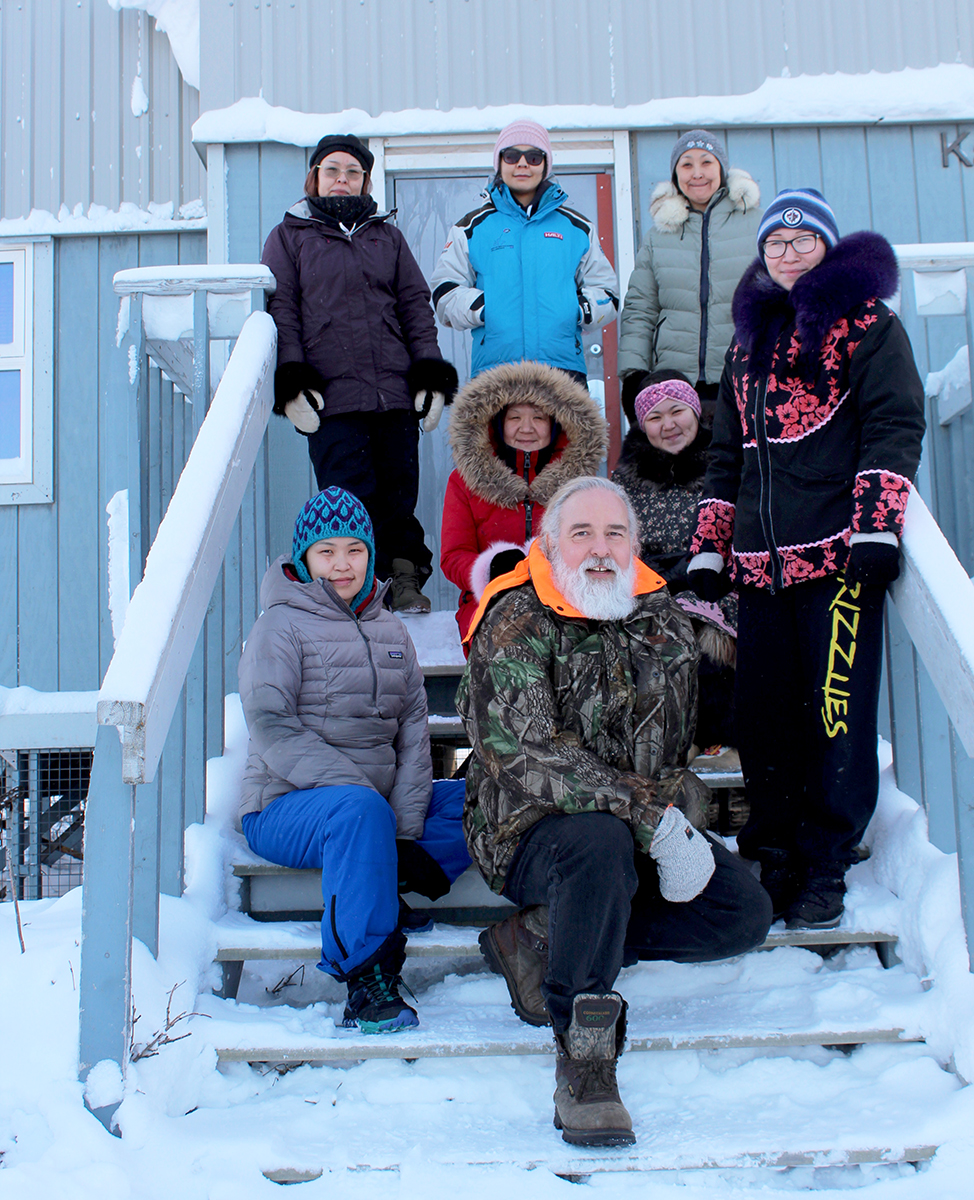
Kugluktuk 2020. Back row L to R: Robyn, Kathleen, and Verna.
Second Row L to R: Janice and Andrea.
Front Row L to R: Chelsea, Reid, and Shanda (standing).
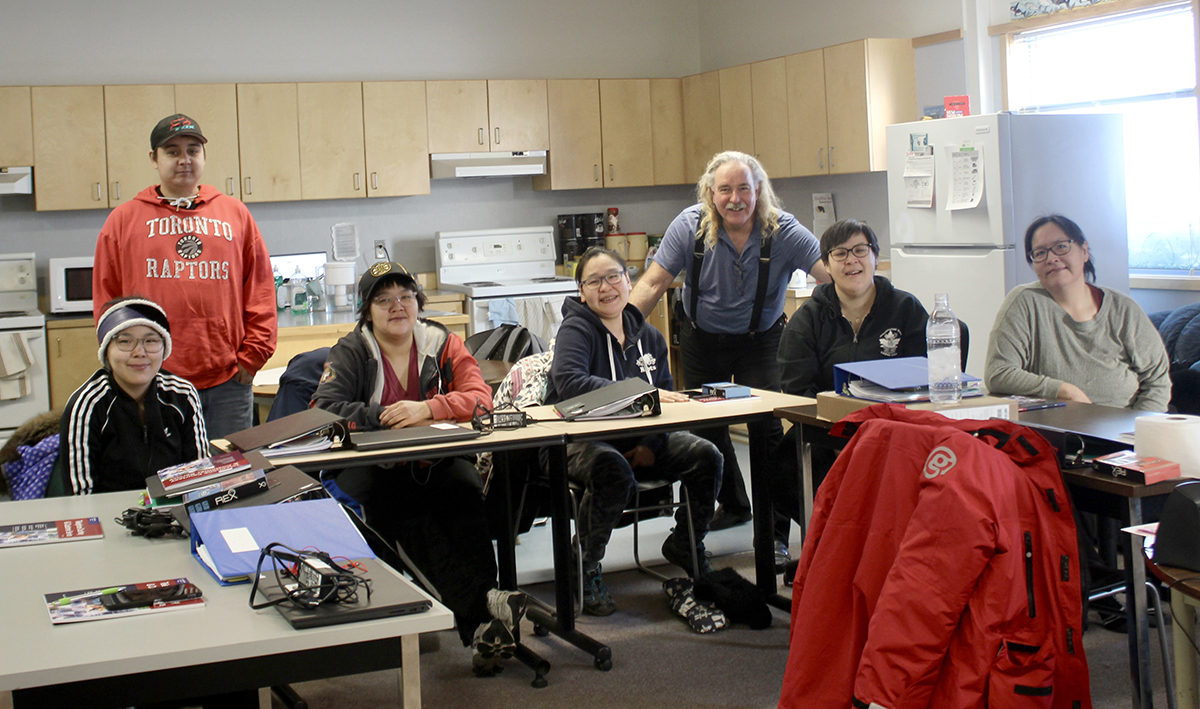 Class in Taloyoak 2023. L to R: Chantal, Corey, Sarah, Vera, Reid, Stephanie, and Diane.
Class in Taloyoak 2023. L to R: Chantal, Corey, Sarah, Vera, Reid, Stephanie, and Diane.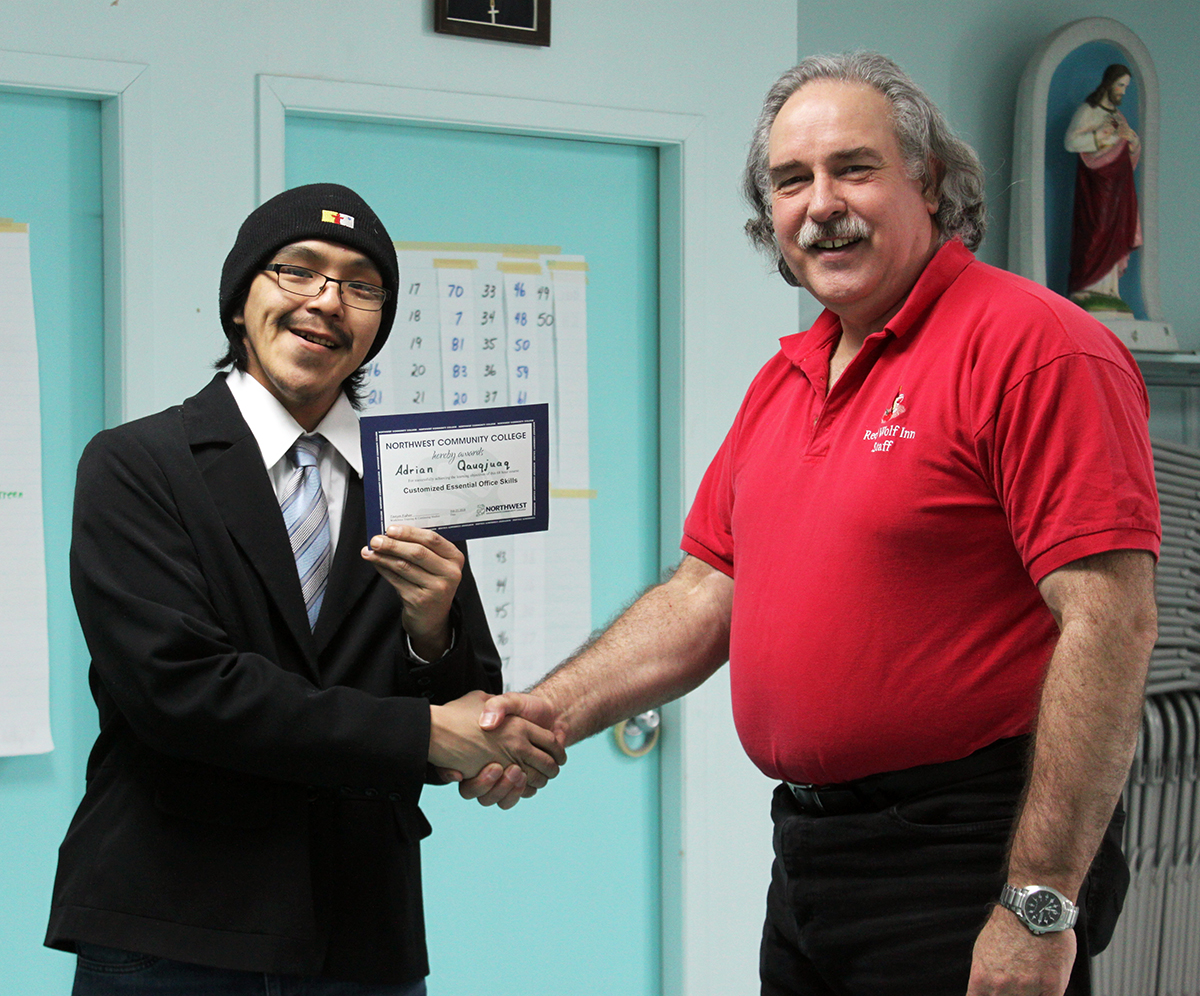 Kugaaruk 2018. Adrian receiving his completion certificate.
Kugaaruk 2018. Adrian receiving his completion certificate.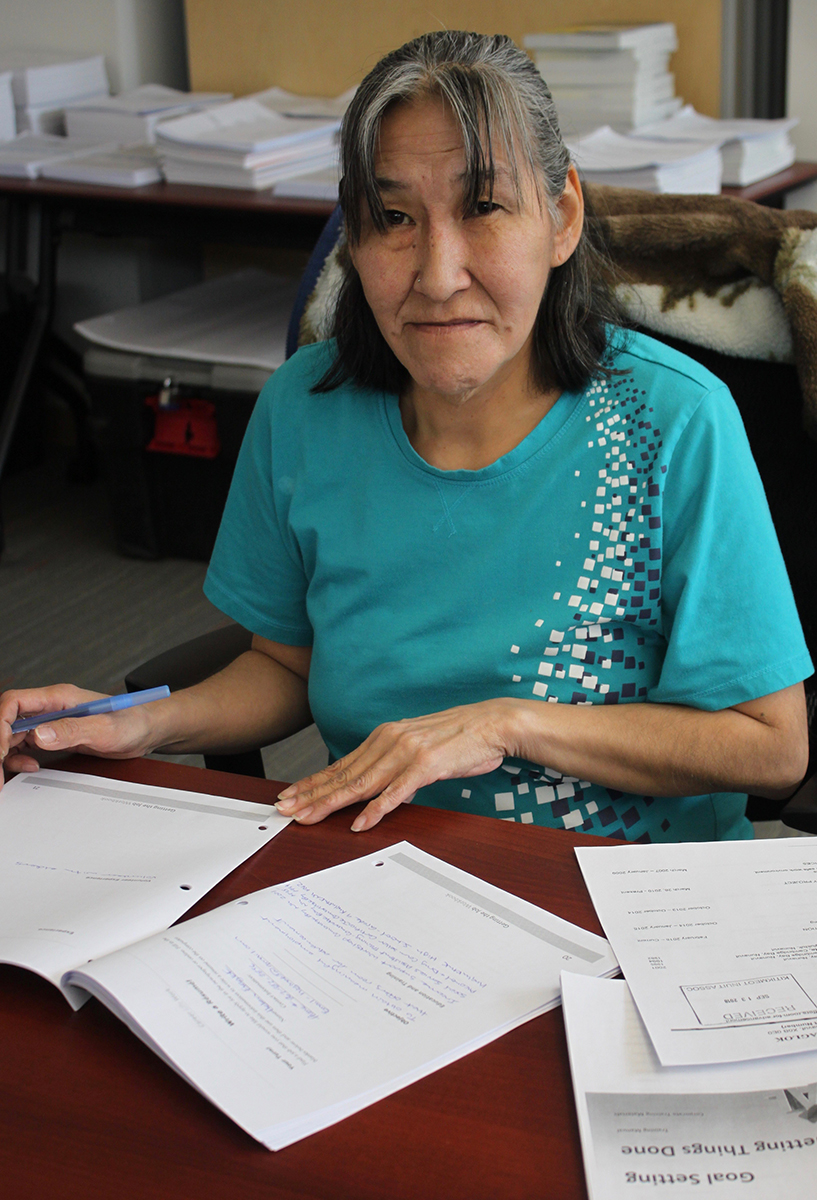 Cambridge Bay 2018. Helen, working in one of the workbooks to create her updated resumé.
Cambridge Bay 2018. Helen, working in one of the workbooks to create her updated resumé.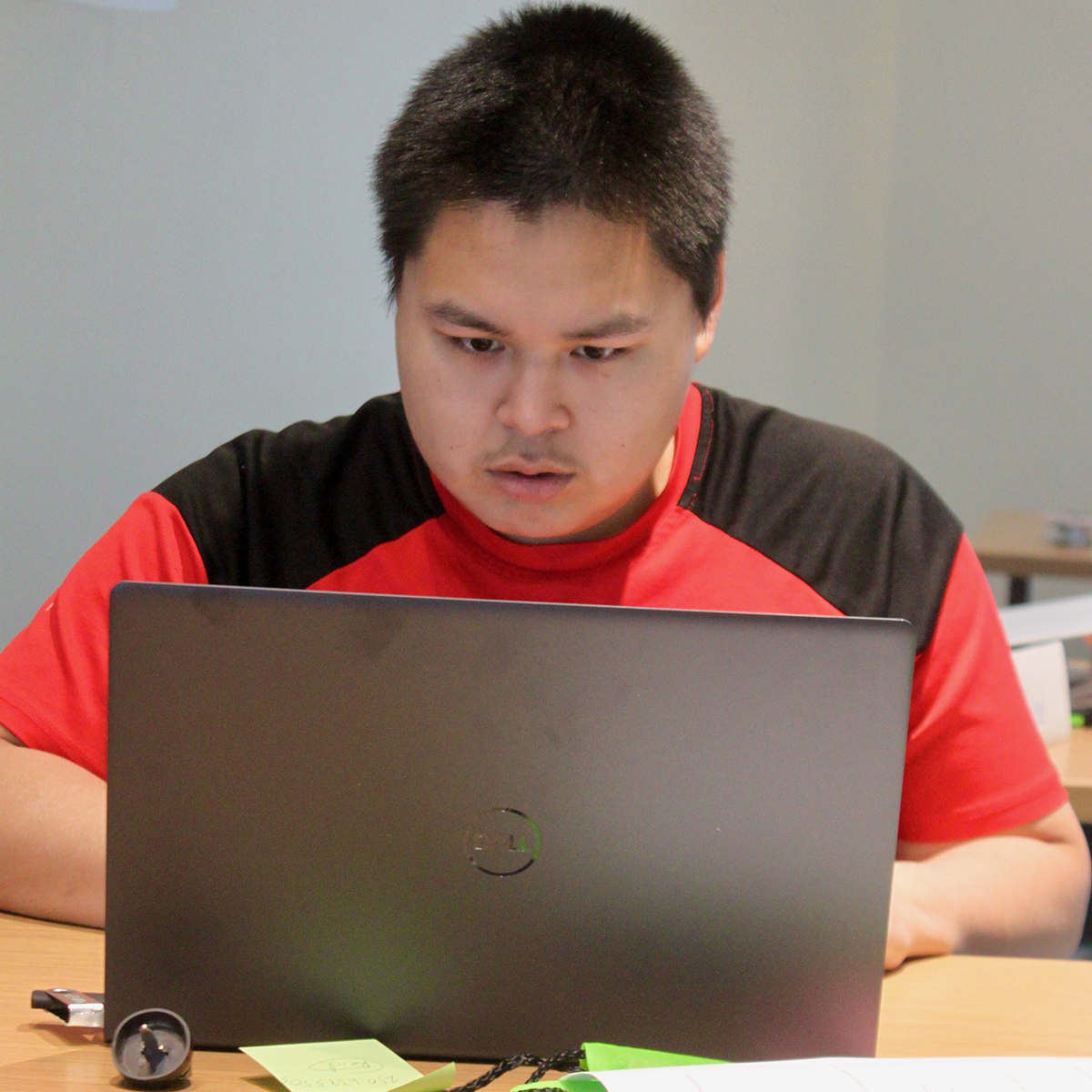 Kugaaruk 2023. Jackie working on one of his essays on Inuit culture.
Kugaaruk 2023. Jackie working on one of his essays on Inuit culture. Kugaaruk 2020. Shanda.
Kugaaruk 2020. Shanda.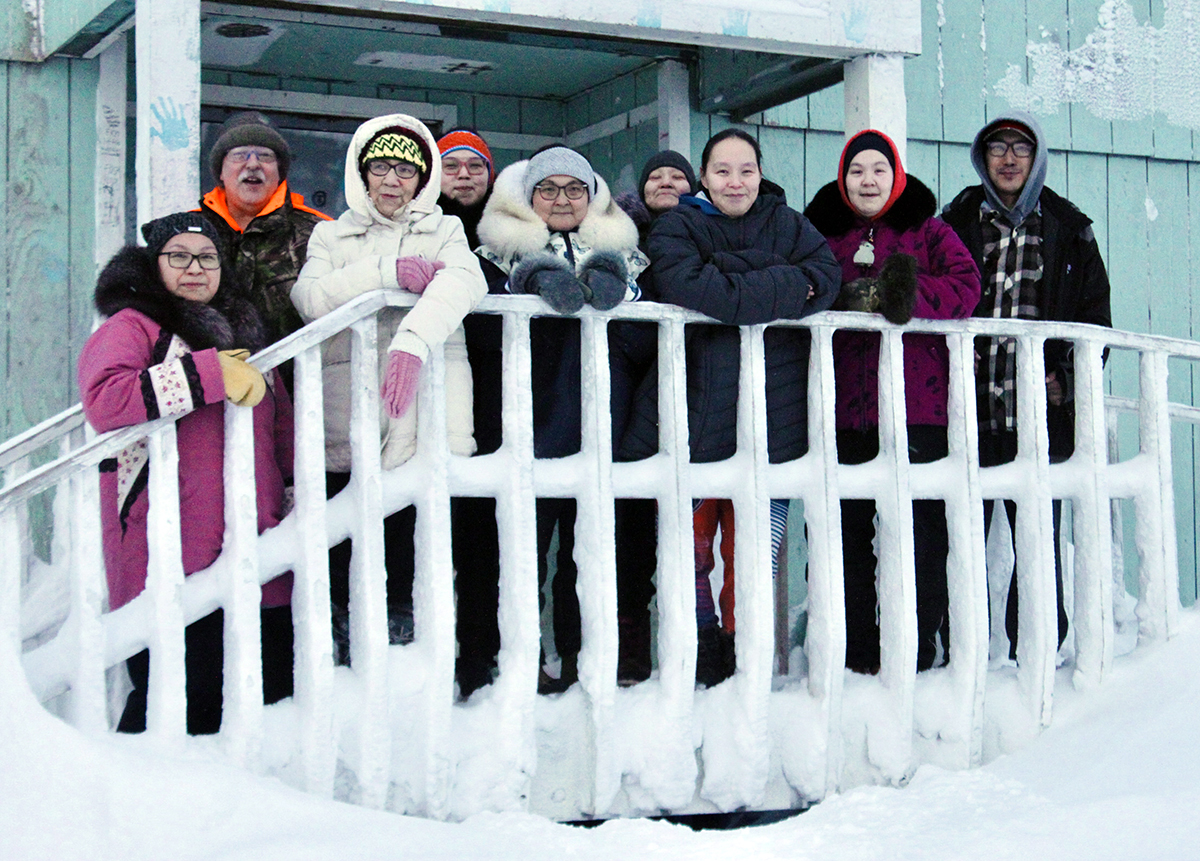 Gjoa Haven 2024. L to R: Donna, Reid, Elizabeth, Bethany, Lillian, June, Patricia, Melissa, and Jackie.
Gjoa Haven 2024. L to R: Donna, Reid, Elizabeth, Bethany, Lillian, June, Patricia, Melissa, and Jackie.###
Media Contact:
Heather Bastin
Executive Director, External Relations
hbastin@coastmountaincollege.ca
Tel: 250-635-6511 Ext. 5494